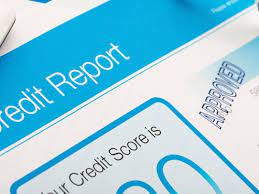Credit scores are extremely important in the home-buying process. Your FICO score does not only affect whether you qualify for a loan in the first place. It also influences your mortgage conditions. This article is a guide on how your credit score affects your mortgage loan approval. You’ll see the minimum credit score required to qualify for a mortgage loan, as well as lenders that will approve your loan if your credit score falls below 580. You’ll also see the minimum credit score required to refinance a mortgage.
What Credit Score is Required To Get A Mortgage Loan?
A mortgage does not require perfect credit. However, because credit ratings predict the likelihood that you would not return the loan, lenders may reward a higher score with more options and cheaper interest rates.
For most loan types, a minimum credit score of 620 is needed to qualify for a mortgage. However, a better score greatly increases your chances of approval. This is because borrowers with scores below 650 account for a small percentage of concluded purchase loans. Applicants with 740 or better credit scores will also receive the lowest interest rates.
Minimum Credit Score Requirements for Various Loan Types
#1. Conventional Loan
Minimum credit required: 620
A conventional loan with a credit score as low as 620 may be possible. However, these mortgages frequently require higher ratings. According to ICE Mortgage Technology statistics, FICO scores for home buyers using conventional loans averaged 757 for the six-month period ending September 2021.
Borrowers with stronger credit scores also get a discount on private mortgage insurance, or PMI, which is required if they put down less than 20% on a conventional loan. According to Joe Parsons, a branch manager, and senior loan officer at Pinnacle Home Loans in Dublin, California, a 620 applicants will pay 1.1 percent in PMI with a 10% down payment. He claims that a 760 FICO borrower would pay only 0.30 percent.
#2. FHA loan
Minimum credit required: 500
If your credit score is in the 500s, your best bet for a house loan is one that is insured by the Federal Housing Administration. FHA loans allow for down payments as low as 3.5 percent, but you must have a FICO score of 580 or higher to qualify. You will be asked to make a 10% down payment if your credit score is 500 to 579.
However, lenders can impose their own credit minimums for FHA loans, and borrowers who only achieve these minimums will likely have a more difficult time getting accepted. According to ICE Mortgage Technology, the average FICO score for house buyers using FHA loans in the six months ending September 2021 was 677. Meanwhile, in September 2021, customers with credit scores ranging from 500 to 549 accounted for only 0.33 percent of all closed FHA loans.
Even lenders who are willing to take on a customer with a credit score of less than 600 will want to ensure that your other financial circumstances are secure.
#3. VA loans
Minimum credit required: 640
Mortgages guaranteed by the Department of Veterans Affairs, sometimes known as VA loans, do not have a minimum credit score set by the government. The major requirement is that you be a veteran, an active-duty military member, or an eligible spouse.
However, VA lenders set their own minimum credit scores. These vary, but they are typically around the low to mid-600s.
According to ICE Mortgage Technology, the average credit score for VA home buyers for the six-month period ending September 2021 was 722.
#4. USDA loans
Minimum credit required: 640
Home loans from the United States Department of Agriculture, like VA loans, have no predetermined minimum credit score – and lenders can set their own. However, if your credit score is higher than 640, you may be qualified for simplified credit processing on a USDA loan.
#5. Jumbo Loans
Minimum credit required: 700
Most lenders will require a credit score of 700 or more to obtain a mortgage that is bigger than the conforming loan limit, also known as a jumbo loan. Because financing such large sums of money is inherently dangerous, lenders prefer potential house purchasers to have good financials, especially a high credit score.
You’re more likely to acquire the best jumbo mortgage rates if you have a FICO score of 740 or above. Using a mortgage calculator may demonstrate how even a slightly reduced interest rate can make a significant difference.
What is the Minimum Credit Score Required to Refinance Your Mortgage?

While the credit score required to refinance a mortgage varies depending on the loan program, most loan types demand a minimum of 620 to qualify for a refi. Borrowers with stronger credit scores typically receive lower refinance interest rates. Making sure your credit is in good shape before refinancing is essential for securing affordable rate offers.
Your credit score, among other things, determines your eligibility for a home refinance. Your two most important considerations are:
The debt-to-income (DTI) ratio: is the percentage of your gross monthly income that is utilized to make debt payments.
Loan-to-value (LTV) ratio: the percentage of the value of your home that is financed by your mortgage.
The type of mortgage program you utilize to refinance also influences qualifying requirements.
Read Also: WHAT CREDIT SCORE IS NEEDED TO BUY A CAR: Credit Score You Will Need to Buy a Car in 2023
The Minimum Credit Score Required to Refinance Your Mortgage
Minimum credit score for rate-and-term refinance
#1. Conventional Loans
Minimum credit score: 640 to 700
A rate-and-term refinance is a “classic” refinance that is frequently utilized to change your repayment period or reduce your mortgage rate. The minimum credit score needed to refinance a conventional loan when refinancing a single-family house is determined by your DTI and LTV ratios. As an example:
For borrowers with an LTV ratio more than 75% and a maximum DTI ratio of 36%, the minimum credit score is 680. If you have a maximum DTI ratio of 45 percent, your credit score minimum rises to 720.
For borrowers with an LTV ratio of less than or equal to 75 percent and a maximum DTI ratio of 36 percent, the minimum credit score is 640. A minimum credit score of 680 is required if you have a maximum DTI ratio of 45 percent.
If your credit score is between 620 and 680, your lender may ask you to have mortgage reserves ranging from two to six months’ worth of costs. If your LTV ratio hasn’t decreased below 80 percent at the time of your refinance, you’ll also be liable for paying closing expenses and private mortgage insurance (PMI).
#2. FHA Loans
Minimum credit required: 500 to 580
The minimum credit score required for a rate-and-term refinance on a Federal Housing Administration (FHA) home loan is determined by your LTV ratio.
Borrowers with a maximum LTV ratio of 97.75 percent must have a minimum credit score of 580.
Borrowers with a maximum LTV ratio of 90 percent must have a minimum credit score of 500.
In addition to the typical closing fees, you will have to pay upfront and annual FHA mortgage insurance premiums.
#3. VA loans
Minimum credit score required: no minimum, but often 620.
The United States Department of Veterans Affairs (VA) does not require a minimum credit score for rate-and-term refinances, however, VA lenders typically want a minimum 620 credit score.
You will also have to pay closing charges and fees.
Minimum credit score for cash-out refinance
#1. Conventional Loans
Minimum credit required: 660-700
A cash-out refinance allows you to replace your existing mortgage with a new loan for a greater amount and receive the difference in cash. The following credit ratings are needed for a conventional loan cash-out refi on a single-family home:
For borrowers with an LTV ratio of more than 75% and a maximum DTI ratio of 36%, the minimum credit score is 680. A 700 credit score is required if your DTI ratio is between 37% and 45%.
For borrowers with an LTV of 75 percent or less and a maximum DTI ratio of 36 percent, the minimum credit score is 660. For people having a maximum DTI ratio of 45 percent, the minimum score is 680.
The highest LTV ratio allowed on a conventional cash-out refinance is 80%, which implies you must have at least 20% equity. You will also have to pay closing charges and fees.
#2. FHA Loans
Minimum credit required: 500.
The conditions for an FHA cash-out refinance are more flexible than those for conventional loans, similar to rate-and-term refis. The minimum credit score is 500, with an LTV ratio of up to 80% authorized. Closing expenses and mortgage insurance requirements apply to cash-out refinances as well.
#3. VA loans
Minimum credit required: no minimum, but often 620.
A VA cash-out refinance has no minimum credit score, however, lenders normally want at least a 620 credit score. The highest allowable LTV ratio is 90%. This sort of VA loan also has standard closing expenses and fees.
Can You Get a Mortgage with a Credit Score of 580?
Many prospective house buyers believe that you must have credit in the 600s or 700s to qualify for a mortgage. This is not the case, since many mortgage lenders will make home loans to people with credit ratings as low as 500.
FHA Loan with a Credit Score of 580
An FHA loan is the most popular type of loan offered to customers with a credit score of 580. FHA loans only require a 500 credit score, thus you will definitely fulfill the credit score requirements with a 580 FICO.
Other FHA loan requirements include having at least two years of experience, providing two years of tax records, and your two most recent pay stubs. The maximum debt-to-income ratio is 43 percent (unless you have acceptable “compensating variables,” such as a larger down payment or cash reserves).
The fact that the minimum down payment required for FHA loans is merely 3.5 percent is appealing to many borrowers. This money can also be borrowed, given as a gift, or granted through a down payment assistance program.
USDA Loan with a Credit Score of 580
The USDA loan now requires a minimum credit score of 640. (for an automated approval). With a 580 credit score, you can still get approved for a USDA loan, but it will require manual approval by an underwriter. Expect to have strong “compensating variables” such as conservative credit use, 2 months of mortgage payments in cash reserves (savings), a low debt-to-income ratio, and/or a long job history in order to get approved with a 580 credit score.
Other USDA loan conditions include purchasing a property in an approved location. USDA loans are only available in rural areas, including the outskirts of big cities. A USDA loan is not available in cities or larger towns (with a population of over 30,000 people).
You will also need to demonstrate two years of steady employment and produce income evidence (2 years of tax returns, and 2 recent pay stubs).
580 Credit Score Mortgage Lenders
The following is a list of some of the finest mortgage lenders for consumers with a credit score of 580. All of the lenders listed below offer conventional and FHA loans and can assist you in determining what alternatives are available to you.
- New American Capital
- American Finance
- Rate Guarantee
- Supreme Financing
- Caliber Home Loans
- US Bank
- Flagstar Bank
- American Financial Network
- Liberty Mortgage
- The Loan Depot
All of the lenders mentioned above provide mortgage loans to borrowers with a credit score of 580.
What Credit Score do you need for a 30 Year Mortgage?
Lenders typically require borrowers to have at least a “fair” credit rating, which begins at 620. There is a chance you could get approved for an FHA loan with a credit score as low as 500 if you apply for one.
What is a Good Credit Score to Buy a House 2023?
In 2023, a conventional mortgage will likely require a credit score of at least 620 before you can even begin to look for a home. You’ll find, however, that there are a number of other loan options with significantly fewer restrictions. Many people thinking of buying their first home worry that they don’t have good enough credit.
Can I get a Mortgage if my Credit Score is Poor?
You can still get a mortgage loan even if you have bad credit. Since there is often little differentiation between “fair” and “bad” credit scores, this could vary considerably from person to person. Mortgages for borrowers with less-than-perfect credit histories are available from a few different types of lenders. However, this may result in additional costs, such as a higher interest rate or fee.
Are there any Mortgage Providers that don’t use a Credit Score?
There are mortgage lenders who are willing to work with borrowers who have a low credit score or a history of financial difficulties. Buckinghamshire, for instance, welcomes those with less-than-perfect credit, small CCJs that are older than six months, and even an Individual Voluntary Arrangement (IVA) that was paid off five or more years ago. Nonetheless, this is only for select items, and acceptance is not guaranteed.
Is a Credit Score of 720 Good Enough for a Mortgage?
You can still buy a house even with a fair credit score, but a higher score will get you a better interest rate and more favourable terms on your mortgage loan. For a mortgage provider, a good FICO score is anything over 670. Although borrowers with credit scores of 720 or higher qualify for the best interest rates.
Does Paying off all Debt Increase Credit Score?
Increasing your credit utilisation ratio by paying off a credit card or line of credit can have a substantial positive effect on your credit score. However, if you pay off an account and then close it, it will shorten your credit history. If this causes your overall average to fall, you may receive a lower score.
In Conclusion,
The credit score required to obtain a mortgage varies depending on the mortgage lender. However, the greater it is, the easier it will be to obtain a better mortgage rate. In this article, we’ve shown how different mortgage lenders make their lending decisions based on your credit score.






